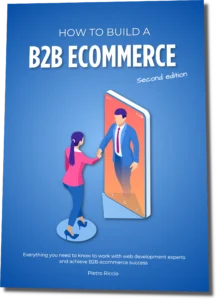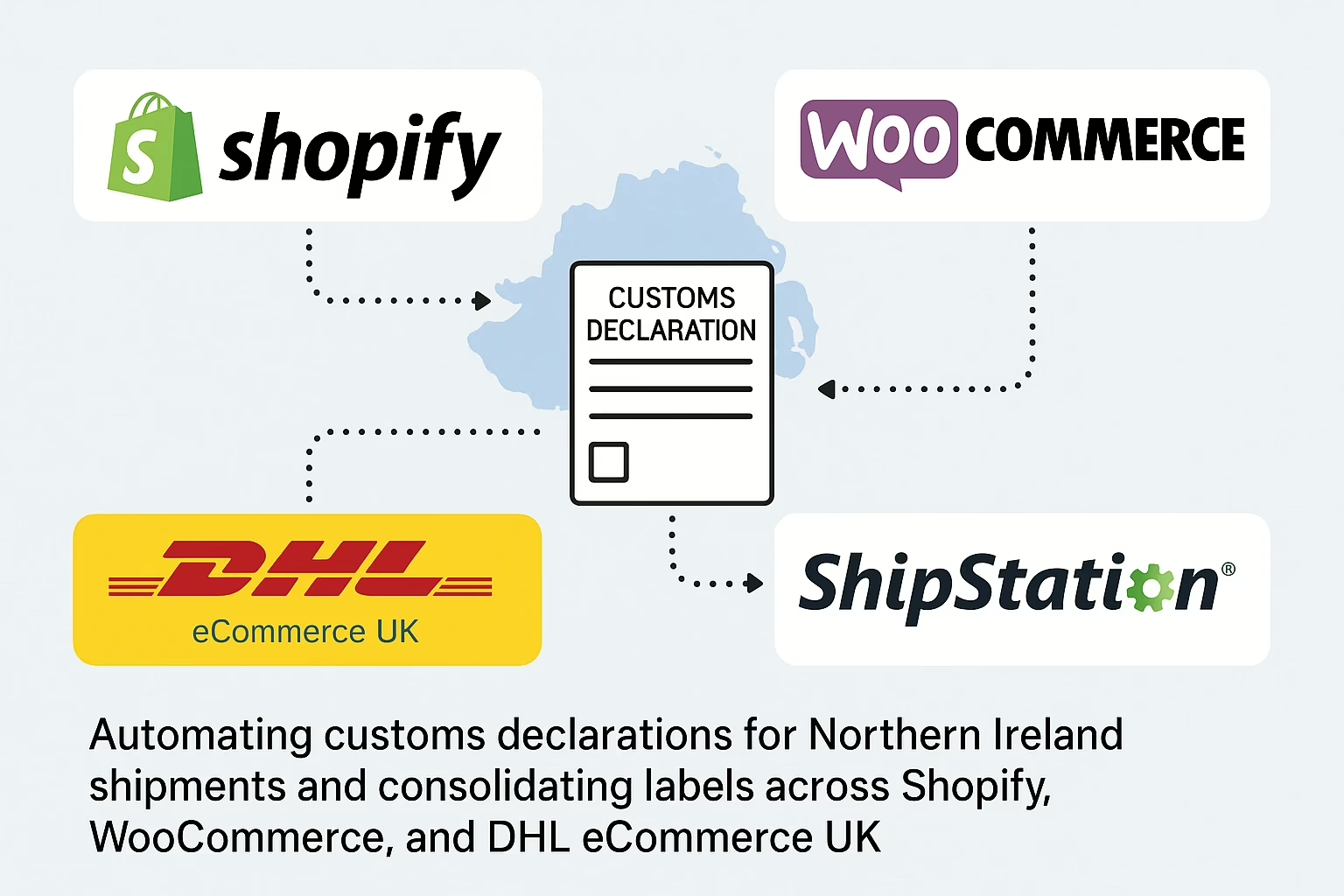Table of Contents
Web Development Agencies: Finding the Perfect Fit
Not all web development agencies are created equal, and choosing the right one is crucial for your e-commerce website’s success, regardless of the platform or CMS you use.
The best web dev agency isn’t just punctual and within budget. It should also align with your work style, company size, product or service, and industry.
The right agency feels like an extension of your team, fully committed to your goals.
Sometimes, you may feel the fit with your current agency isn’t right anymore. That’s when you might consider switching to better meet your business needs.
Switching agencies should be a last resort. With experience on both the merchant and agency sides, we’ve seen clients come and go (more coming than going, fortunately).
In this guide, we’ll help you understand when and why switching agencies can be beneficial, share best practices for making the switch, and highlight common pitfalls to avoid.
Though these insights are based on e-commerce, they can apply to a variety of digital scenarios.
Why Change Your Web Development Agency?
There are many valid reasons to consider changing your web development agency, but also good reasons to stick with your current one and improve your working relationship.
Let’s explore some common scenarios:
Lack of Communication or Transparency:
- Are your support tickets taking too long to get a response?
- Do you feel out of the loop about your website’s status?
These issues can hurt your e-commerce business and often stem from having no dedicated project manager, an understaffed agency, or unclear instructions. If you’re on an Ad Hoc contract, your tickets might be low priority compared to clients with Retainer contracts (to learn more about Retainer and Ad Hoc contracts, click here).
Before switching agencies:
- How have you tried to improve things with your current agency?
- Have you considered hiring an e-commerce or project manager to improve communication and ownership on your side?
- What the new agency must have, that the current agency hasn’t?
Need for Specialized Skills:
As your business grows, you might need advanced features or customizations your current agency can’t provide.
Finding an agency with the right expertise can help, but switching agencies can be costly.
Discuss with your current agency whether they could learn the new technology, potentially working for you at a discounted rate, before making the change.Scalability:
If your current agency can’t handle your business’s growth, it might be time to switch. A larger team or more resources could be necessary.
Alternatively, discuss a medium-term cooperation where the agency scales with you, hiring additional staff to meet your growing needs. This way, you continue working with a team familiar with your project.Cost Efficiency:
Switching agencies might be a strategic move to find a more cost-effective solution, freeing up budget for other critical areas.
However, remember that cost often correlates with quality, and there will be a transition period of reduced efficiency. Sometimes, hiring freelancers directly can save money – just make sure you can manage them.
When is a good Time to switch?
Deciding to change your web development agency is one thing, but planning when to do it is another.
Rushing the process isn’t always the best approach.
Here are some tips for choosing the right moment:
Chose a calm period.
Avoid switching during your peak season.
Disrupted sales during busy times can be costly. Even if the new agency is available right away, onboarding takes time and effort from your team.
Choose a quieter period to make the transition smoother, and sinchronize the selection process accordingly.Complete big projects first.
Finish as many or all major projects as possible before the switch.
Mid-project transitions can slow down progress and might require starting over. Hold off on new, large projects until the new agency is onboarded. This is also an ideal time to plan a CMS migration if that’s in your future.Ensure you have the budget.
Be prepared for potentially higher costs.
Decision-makers should be aware that, even if new rates are lower, onboarding and duplicated work can increase expenses initially.Check your contract.
Review your current contract for minimum length requirements and notice periods.
Make sure you’re clear on these terms before committing to a new agency.
Planning your switch carefully ensures a smoother transition and helps maintain the momentum of your business.
When Should You NOT Change Your Web Development Agency?
Before deciding to switch, take a moment to reflect on these key questions:
How are you cooperating with your current agency?
- Are you responding promptly to their questions or requests?
- Are you providing clear direction on projects and tasks?
- Do you frequently change project requirements?
Agencies struggle with unresponsive clients or those who need constant guidance. If these issues are internal, they’ll likely resurface with a new agency. Consider improving your own processes or adding skilled team members before making a switch.
How bespoke is your website?
If your current agency built your site on a bespoke CMS or created critical customizations, switching could be challenging and costly.
While change is possible, think twice about possible alternatives as the transition may be complicated and expensive.Are your expectations realistic?
If you feel your agency is overcharging and under-delivering, consider whether you’re trying to achieve too much with too little budget, or using the wrong technology.
Sometimes, adjusting your approach can yield better results than switching agencies.How’s the market?
Remember, your product and service are the main drivers of your company’s success. Market conditions might be affecting your performance more than your web development agency.
Reflecting on these points can help you determine if the problem lies with your agency or within your own organization. Sometimes, improving internal processes can be a more effective solution than switching agencies.
What's the best way to switch web agencies?
Switching web agencies is like starting a new project, and since it’s not something you’ll do often, take your time to get it right. This could take a few weeks, or a few months.
Here’s a rough step-by-step guide:
Prepare a brief
Create a brief explaining:
- Who you are and your current situation. Focus on your e-commerce website, of course.
- Your goals and what’s not working with your current agency.
- The volume of web development work you handle now and where your website is hosted.
- Major open tickets to give a sense of ongoing issues.
Shortlist agencies
Based on their portfolios, technologies they use, and their size, create a shortlist of potential agencies.
Cast a wide net and send your brief to multiple agencies. Evaluate their responses to narrow down your list.Final round
For the finalists, ask if they can review your admin panel or project management tools (like Jira or Trello).
If possible, quiz them on how they’d tackle a specific technical challenge you’re facing.
Avoid alerting your current agency to your plans prematurely; don’t request repository or server credentials until you’re ready to transition.Selection and transition
After choosing your new agency:
- Inform your current agency of your decision while maintaining a positive relationship; you might need them again in the future.
- Facilitate an introduction between the new and current agencies to ensure a smooth handover.
Taking these steps carefully will help ensure a successful transition to your new web development agency.
How to prepare for the switch
-
Documentation:
- Collect project plans, design files, and documentation related to bespoke modules.
- Secure copies of code repositories and any other technical documentation.
-
Backups:
- Ensure you have backups of your website, databases, and any other critical files. Store these backups securely.
-
Credentials:
- Obtain all login credentials for third-party services, modules, and any tools purchased and/or set up by your agency on your behalf.
- Once you have all the necessary access, consider disabling the agency’s credentials to ensure security.
Alternatives to making the switch
Switching web development agencies can be a daunting task. Careful planning and clear communication will make the difference.
If you’re feeling overwhelmed or uncertain about switching, consider these alternatives:
- Consultation: Schedule a broad spectrum e-commerce consultation with us to determine if your current agency is truly the bottleneck or if there are internal improvements you can make.
- Hire a Freelance Project Manager:Bring in a freelance e-commerce project manager to facilitate better communication with your agency and streamline your projects.
- Requirements Gathering ServiceUse our e-commerce requirements gathering service to identify an agency that better fits your current needs and circumstances.
If you need professional advice or services related to switching web development agencies, feel free to contact us!




